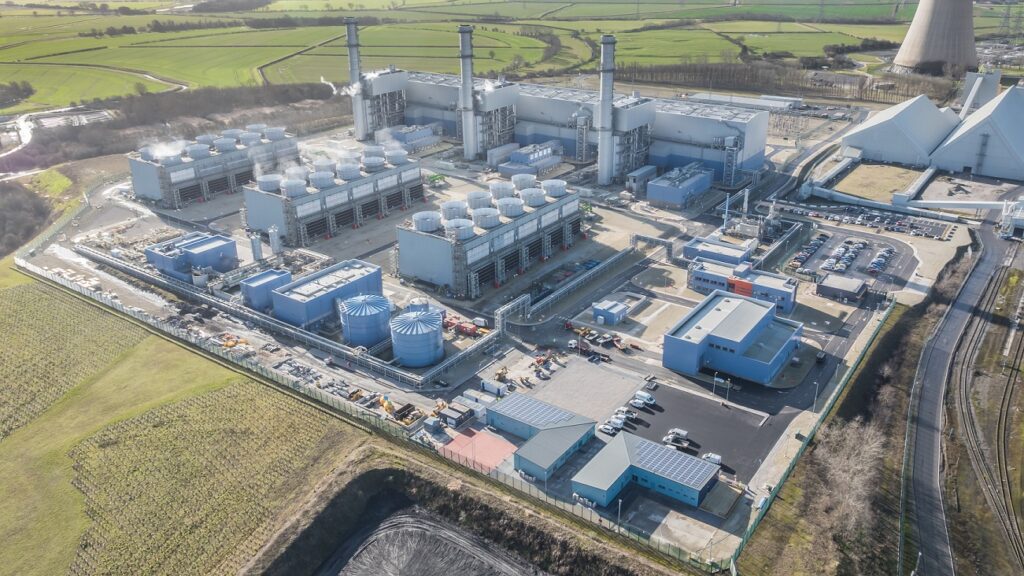Great Britain’s tumultuous energy week has continued, with system tightness leading to West Burton B being called at £3,000/MWh yesterday (6 January).
As margins remained tight, National Grid ESO called on the EDF CCGT plant in Nottinghamshire to balance the grid, helping it to cancel the Electricity Margin Notice (EMN) issued for yesterday on the 5 January 2021.
“Most of National Grid’s actions were bringing on small peakers, bringing on some DSR for example, and then also scaling back some of the running gas plants,” explained Adam Lewis, partner at energy market insight company Hartree Solutions. “So there were very few plants that had headroom that they could offer grid turn up, and I’m talking about big plants, such as West Burton.
“But West Burton was one of the few that hadn’t pre sold their volumes into the auction, so they were available to National Grid.”
The Balancing Mechanism takes into account the intraday market in real time, and feeds into the imbalance price – generally called the SIP. This is not a simple equation noted Alastair Martin, chief strategic officer at Flexitricity.
“Crucially, SIP is supposed to reflect the prices at the edge of the market. As soon as West Burton B and Rye House were taken in the BM at prices in the thousands, the market had to take account of the potential for a very high SIP, resulting in even more volatility. The problem for market participants is that SIP is what they will have to pay if things go wrong – their generator stops working, or their customers take more electricity than expected.
“Subject to rules around open markets and fair competition, BM participants can set their BM prices freely. This is a question of risk versus reward: a high price stands a low chance of being accepted, but when it is accepted, it pays for a lot of the time when a unit was out of the money and could not run at a profit. Pricing strategies like this do occasionally pay off. If it had been windier or warmer, or if we had seen full nuclear availability, such a strategy would not have been successful.”
The grid was particular constrained due to a combination of factors, including low temperatures with the cold snap keeping temperatures 4-5 degrees colder than normal resulting in increased demand. Additionally, lower generation due to fewer coal stations running than previous years, nuclear outages, and the BritNed Dutch interconnector having been down since the beginning of December played a role in the tightened capacity.
This led intraday trading prices to jump dramatically yesterday, hitting £1000.04/MWh between 17:00 and 18:00 GMT in the Nord Pool N2EX, the highest hourly price seen on the auction.
Prices have remained high, hitting £489.60/MWh during the same hourly period today, and £670.39/MWh between17:00 and 18:00 GMT today (7 January 2021).
National Grid ESO noted on Twitter this afternoon that “margins on the #electricity system remain tight and our @NGControlRoom is monitoring them closely”.
These volatile pricing events have become increasing common, with four EMNs issued by National Grid ESO this winter.
Speaking to Current±, energy tech company Limejump noted: “The increased frequency of these situations is predominantly a result of the tightness we have seen this winter driven by weather and plant availability.”
This has already lead to more extreme Balancing Market prices, hitting £1,000/MWh in December a number of days after National Grid ESO issued a capacity notice. Following this power prices spiked to £720/MWh, as well as hitting an unprecedented day-ahead clearing price for a Sunday of £350/MWh.
An additional factor for the high power prices this week has been Brexit, with Great Britain no longer participating in the EUphemia market, further complicating energy trading.
“Because the UK is now decoupled in the auctions with the continent, that is itself going to have an impact,” said Lewis. “Whereas before you had a single auction, and if you were an interconnector or capacity holder, it was a low risk; there was a low risk methodology of optimising those flows to ensure that they flowed in the most optimum way. Now, because of Brexit, we’ve decoupled and I think that added on to that.”






